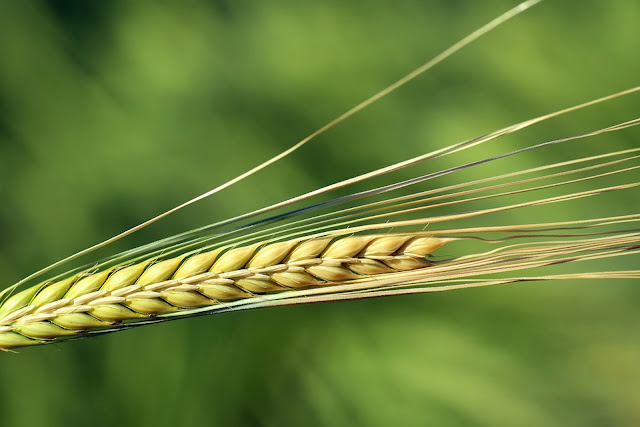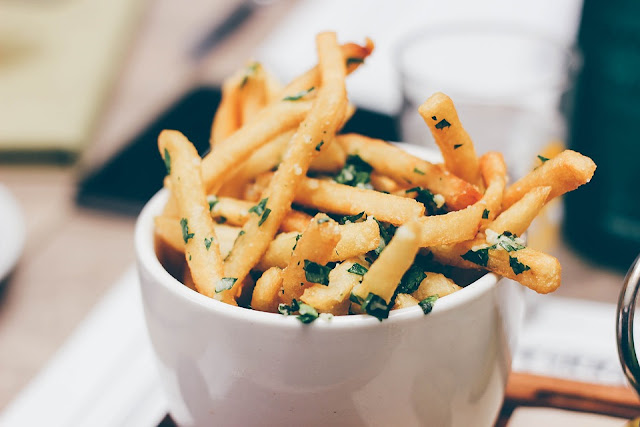Barley, The Super Grain- Health Benefits, Side Effects & How to cook
An ancient grain, barley was first cultivated
almost 10,000 years ago in Ethiopia and Southeast Asia. Consumed by Roman athletes for strength and energy, it was also used as food source for humans & animals. In the same manner, in ancient Greek culture, barley was used as a staple bread-making grain. Some reports also state that this grain was honored in ancient China as a symbol of male virility. Used in making beer & whiskey till date, it was also used to make wine during early years. A versatile grain with a rich nutty flavor, some find it a bitchewy. Let's find out more about this super grain, it's health benefits & how to add it to our diets.
A member of the grass family, consumption of barley & it's water has many health benefits. High in both soluble & insoluble fiber, it can be easily found in the market in hulled, pearl, pot/scotch, flakes & grit form. Besides, consuming barley helps maintain optimum health as it contains essential nutrients like manganese, selenium, copper, vitamin B1, chromium, phosphorus & magnesium.
A member of the grass family, consumption of barley & it's water has many health benefits. High in both soluble & insoluble fiber, it can be easily found in the market in hulled, pearl, pot/scotch, flakes & grit form. Besides, consuming barley helps maintain optimum health as it contains essential nutrients like manganese, selenium, copper, vitamin B1, chromium, phosphorus & magnesium.
 |
| Creative Commons - Source |
Let's look at the health benefits of barley:
Great Source of Fiber: An excellent source of soluble & insoluble fibers, barley is great for your intestinal health. Additionally, studies show that the fiber present has beneficial effects on cholesterol. Besides, the insoluble fibers present, help maintain larger populations of
friendly bacteria in the gut. These friendly bacteria help minimize disease-causing bacteria by preventing them from surviving in the intestinal tract.
Cholesterol
Free & Low in Fat: A great cholesterol free grain, barley is also very
low in fat. Also, adding it to our diets, helps promote a feeling of fullness. This results in healthy weight loss.
Great Source of Vitamins & Minerals:
Barley is a great source of vitamins like vitamin B1, vitamin B3 that help maintain a healthy nervous system. Moreover, these B vitamins are required to
maintain healthy skin, hair, and eyes. Other vitamins present are A, K, B6
and B12. Barley also contains important minerals like iron, selenium, magnesium, zinc & copper. In addition, it is also a great source of phosphorous. These minerals help maintain normal thyroid function & play an important role in
the formation of bone and cartilage. Do try eating the whole grain for maximum benefits.
Powerhouse of Phytonutrients & Antioxidants:
Phytonutrients present in barley, help guard the body against risk of breast & prostate cancer. In addition the antioxidants present, play a role in maintaining our overall health and helps reduce risks of heart disease and damage caused by the oxidation process. A low-glycemic grain, it is beneficial for people suffering from type 2 diabetes.
Barley's fiber helps in removing cholesterol-containing bile, hence forcing our bodies to make more bile. This results in lowering of cholesterol levels by breaking it down. The soluble fiber helps the body metabolize fats & cholesterol, which in turn lowers cholesterol levels
Do start with consuming small quantities & gradually increase, as it may cause side effects in some.
Here are some possible side effects of the grain:
How to Cook Barley:
Barley water: to make 2-3 glasses of nutritious barley water, soak 5 teaspoon pearl barley in 4 glasses of water & boil for 15-20 minutes. Strain, cool & add some lemon before drinking.
Barley Porridge: to make a wholesome breakfast, boil 1/4 th cup barley flakes with 3 cups milk till cooked. Add a pinch of cinnamon powder, diced apples & honey to taste. Serve hot.
Barley Salad: Cook barley in water as per instructions. Chop red, green, yellow peppers & one carrot. Saute them but do retain some crunch. For the dressing mix together olive oil, balsamic vinegar, honey, pinch of pepper powder, salt to taste. Pour the dressing over the cooked grain & sauteed veggies, mix well. Top with some chopped parsley/cilantro for added flavour.
Here are some possible side effects of the grain:
- Not Gluten Free: Barley contains gluten & should be avoided by people with gluten intolerance.
- In some cases, eating too much quantity can cause stomach cramps & diarrhea.
- Pregnant women should check with their doctors before consuming.
How to Cook Barley:
Barley water: to make 2-3 glasses of nutritious barley water, soak 5 teaspoon pearl barley in 4 glasses of water & boil for 15-20 minutes. Strain, cool & add some lemon before drinking.
Barley Porridge: to make a wholesome breakfast, boil 1/4 th cup barley flakes with 3 cups milk till cooked. Add a pinch of cinnamon powder, diced apples & honey to taste. Serve hot.
 |
| Creative Commons - Source |
Barley Salad: Cook barley in water as per instructions. Chop red, green, yellow peppers & one carrot. Saute them but do retain some crunch. For the dressing mix together olive oil, balsamic vinegar, honey, pinch of pepper powder, salt to taste. Pour the dressing over the cooked grain & sauteed veggies, mix well. Top with some chopped parsley/cilantro for added flavour.
 |
| Creative Commons - Source |
Do let us know your favorite barley recipes in the comments section.






Thanks for sharing a nice post here that aware people of health benefits.
ReplyDeleteSonalika Tractor
This is special information which is shared by you. This information is meaningful and important for us to increase our knowledge about it. Always keep sharing this kind of information. Thanks once again. Indo Farm Tractor
ReplyDeleteOUTSTANDING! Well written, clearly explained & easy to understand.
ReplyDelete